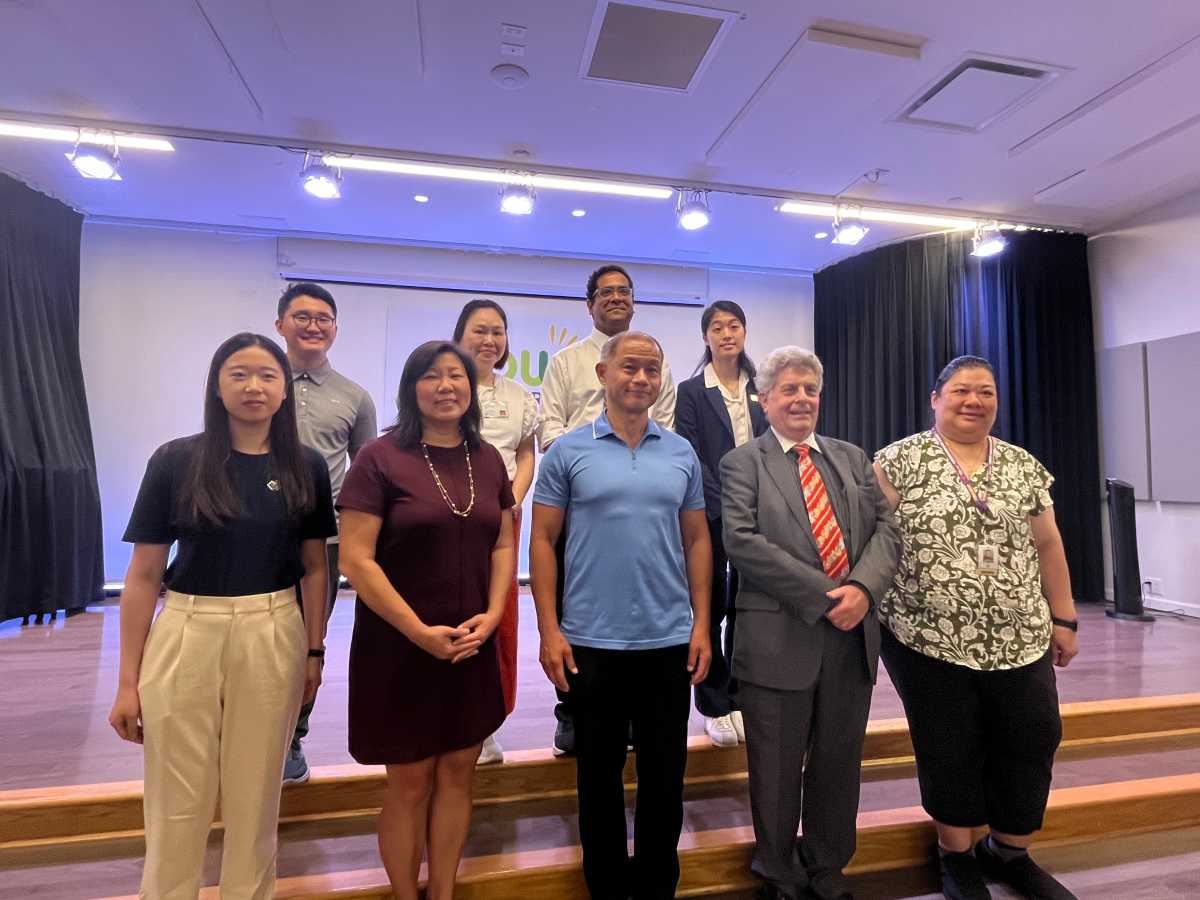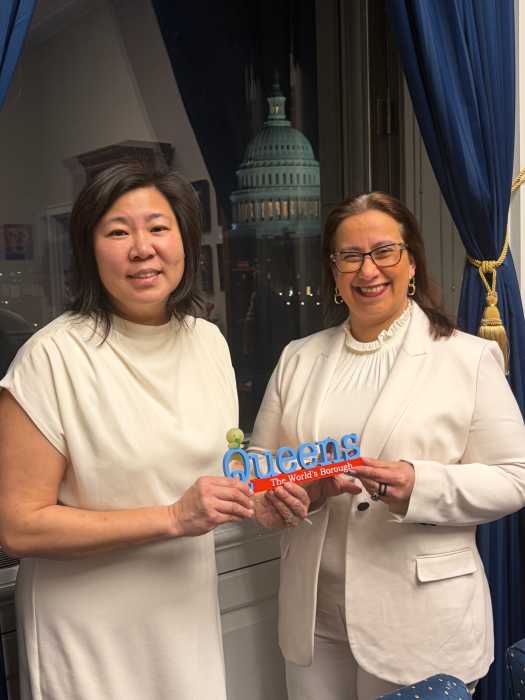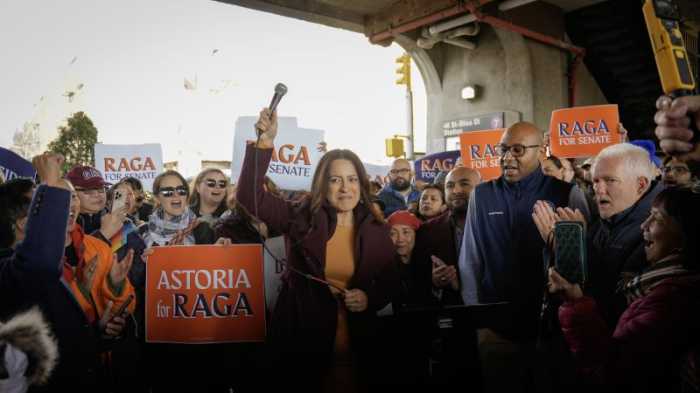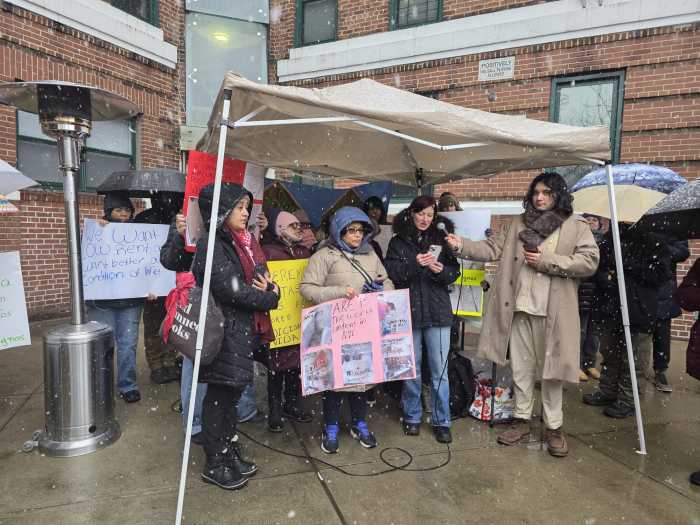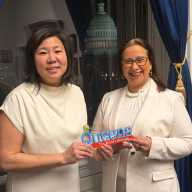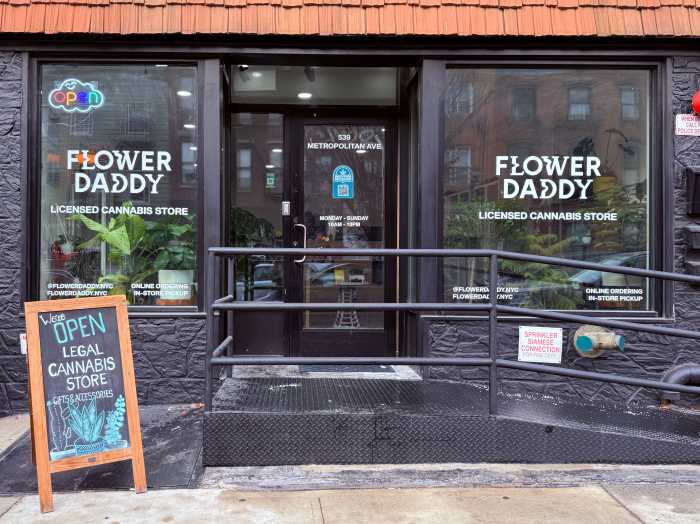U.S. Rep. Grace Meng and state Sen. John Liu held a roundtable event in Flushing on Tuesday, July 29, to discuss the impact of President Trump’s federal budget reconciliation bill on New York City, particularly for residents in their districts.
The elected officials were joined by community health leaders and stakeholders servicing Flushing residents, including representatives from Flushing Hospital, the Charles B Wang Community Health Center, the Chinese American Planning Council (CPC),and Korean Community Services (KCS). The roundtable was held at the Glow Cultural Center, located at 133-29 41st Ave. in Flushing.
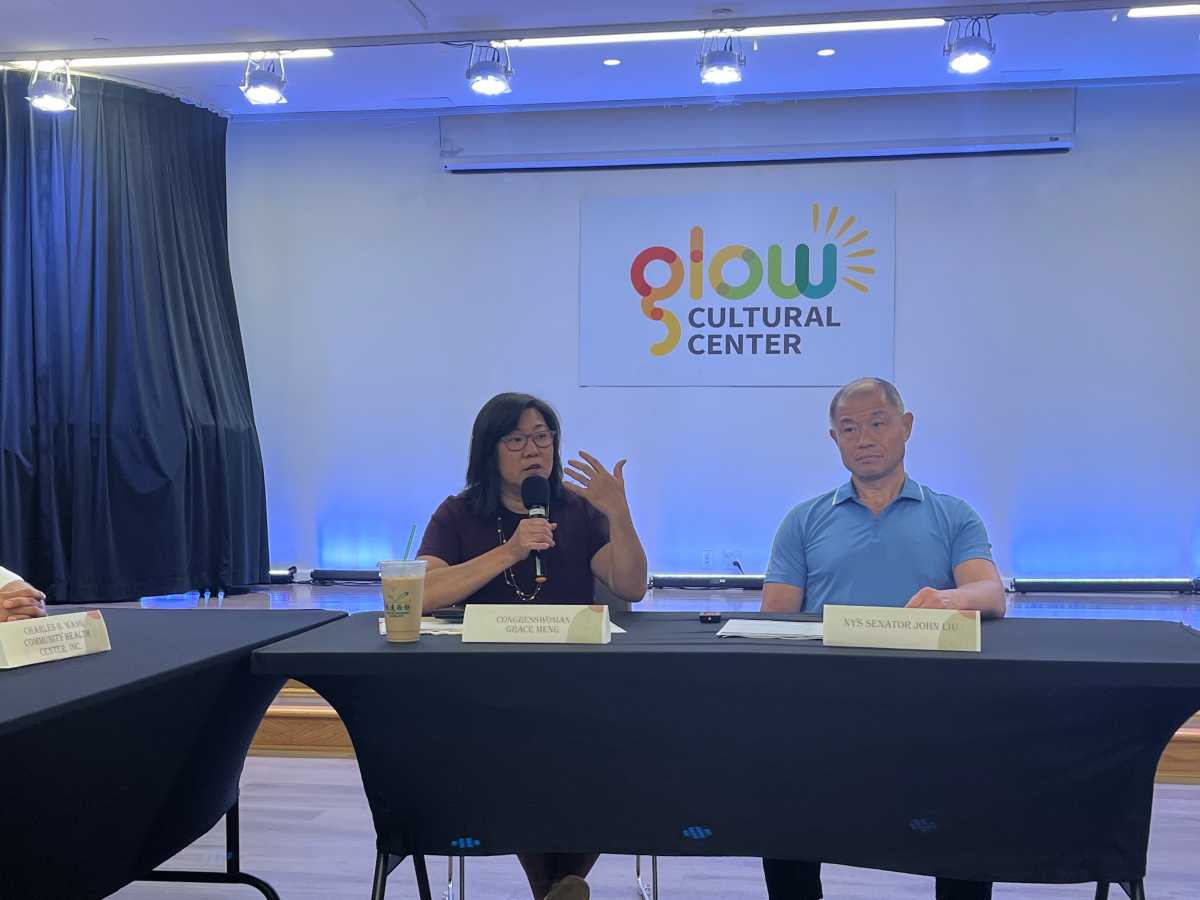
Many opponents of the reconciliation bill argue that budget cuts directly target essential programs, including Medicaid, the Affordable Care Act, SNAP benefits and other health and social services that millions of New Yorkers rely on.
Both Meng and Liu’s congressional and senatorial districts overlap, as they preside over the neighborhoods of Flushing, Fresh Meadows and Bayside.
President Trump, who dubbed the bill “One Big Beautiful Bill,” signed it into law on July 4.
Liu said the spending cuts are devastating for people across the country who rely upon Medicare, Medicaid, and the Essential Plan.
“In reality, as many of us in the community know, it’s a bad, ugly budget. It’s one that turns back progress, decades of progress of helping people with important issues and concerns, such as healthcare, education, economic and job opportunities, the ability to pursue and achieve the American dream,” Liu said.
Meng added that one of the most alarming aspects of the bill is the ‘catastrophic cuts’ to Medicaid, as hundreds of thousands of Queens residents rely on it for healthcare.
“Medicaid [cuts] will largely adversely affect Queens residents, our local healthcare system, our nursing homes, and healthcare centers,” she said. “ When we’re talking about parts of the bill, let’s think about the priorities of who this bill helps and who this bill hurts,” she said.
According to Meng’s office, roughly 300,000 households in New York are estimated to lose all or a portion of their SNAP benefits, with an estimated average loss of $220 per month per household. In Meng’s congressional district — District 6 — 93,886 individuals across 60,318 households receive SNAP benefits, with 21.8% being children, 44% being elderly, and 3.5% being disabled.
Additionally, 279,473 people in District 6 rely on Medicaid, including 88,005 children under the age of 19 and 50,000 seniors over 65.
Kaushal Challa, CEO of the Charles B. Wang Community Health Center, explained that the health center would be at the forefront of the budget cuts. Challa said that the bill’s changes to Medicaid eligibility guidelines will create a barrier for patients unable to navigate their coverage, leading to a decline in coverage.
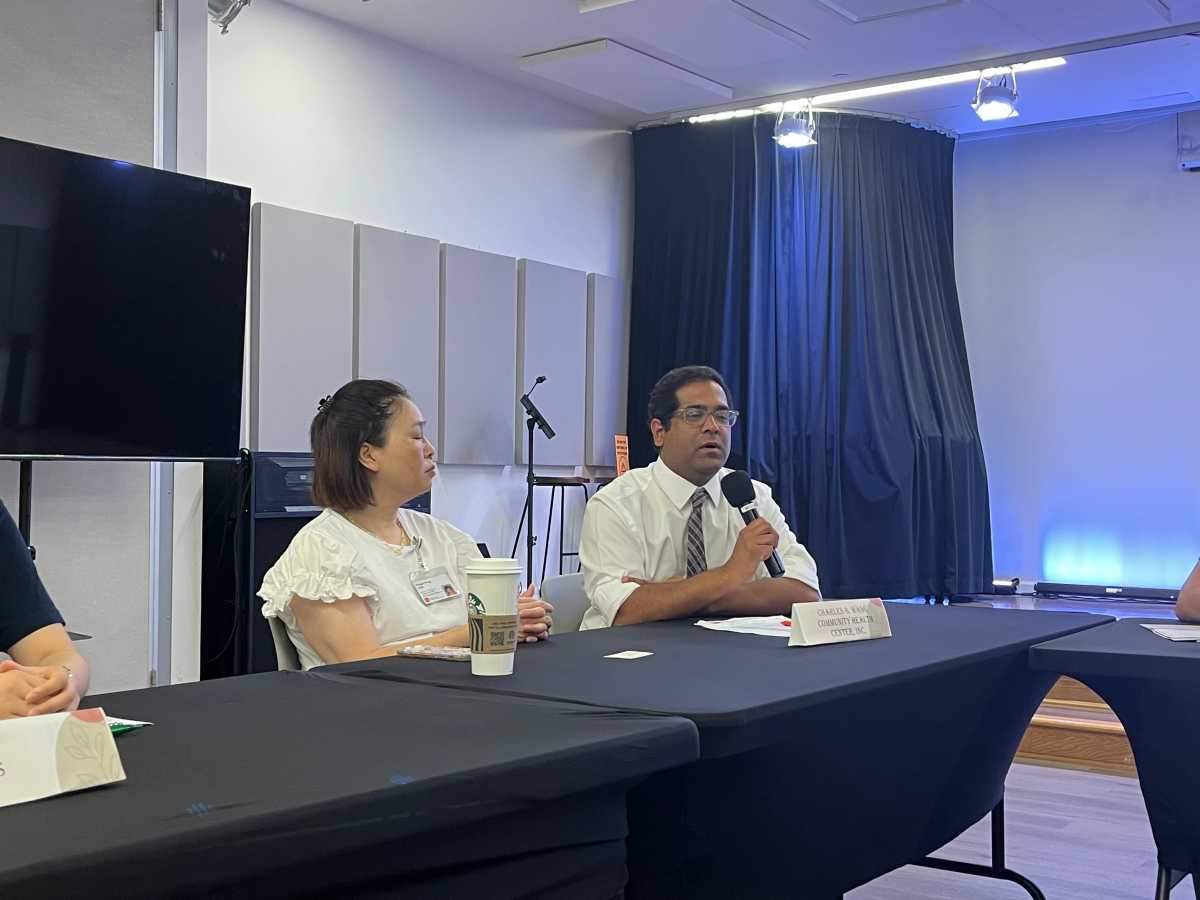
“We are very concerned that people will lose coverage, not because they are ineligible, but because they are eligible and didn’t figure out how to get through the red tape,” he said. “We’re talking about more frequent recertification periods, we’re talking about establishing work requirements and submitting paperwork for that. Our communities are not always the most equipped at handling complicated, legalistic paperwork.”
The health center provides healthcare to over 65,000 New Yorkers, the majority of whom are Chinese-language speakers who have Medicaid or the Essential Plan.
Dr. Andrew Rubin of Flushing Hospital shared research from the Greater New York Hospital Association explaining how the bill would affect New Yorkers’ health insurance eligibility.
Predictions are that 1in 13 New Yorkers will lose health insurance, and they will have a harder time proving that they are eligible for Medicaid and being dropped from the Essential Plan.
Rubin also shared how the cuts would directly affect hospital systems.
“Medicaid payments to hospitals will be cut, hospitals will have less money to hire new staff, upgrade equipment… some hospitals that treat alot of Medicaid patients may be forced to close their doors,” he said. “ Jobs are going to be lost, 34,000 hospital jobs, which is a 7% reduction from current hospital employment, across the state. Twenty-nine thousand more jobs will be lost due to healthcare-related expenses, suppliers for hospitals and ancillary services.
Rubin added that it is estimated $14.4 billion will be lost in hospital-generated income and economic activity.
“In the borough of Queens, so many people rely on the minimal amount of healthcare coverage that they’re entitled to, and if that’s taken away, we still have to treat them,” Rubin said. “But people are going to be afraid to come to the hospital, they are going to be hit with bills they can’t afford. It’s a complicated bill. It’s going to be implemented over time, but it will definitely be very dangerous to the healthcare system.”
Representatives of the CPC and KPC shared the direct impacts the bill would have on their social services organizations.
Taewon Kim, manager of public health and research at KCS, highlighted that nearly 2 million New Yorkers are at risk of losing their health insurance under the bill’s guidelines.
Kim said the bill will have a direct impact on Flushing residents.
“I just feel that individuals and community members who are chronically sick will be devastatingly impacted. As for the Korean community, a lot of Koreans in our local community are visa holders, green card holders, or refugees who are eligible for the Essential Plan, which will be targeted as well,” he said.
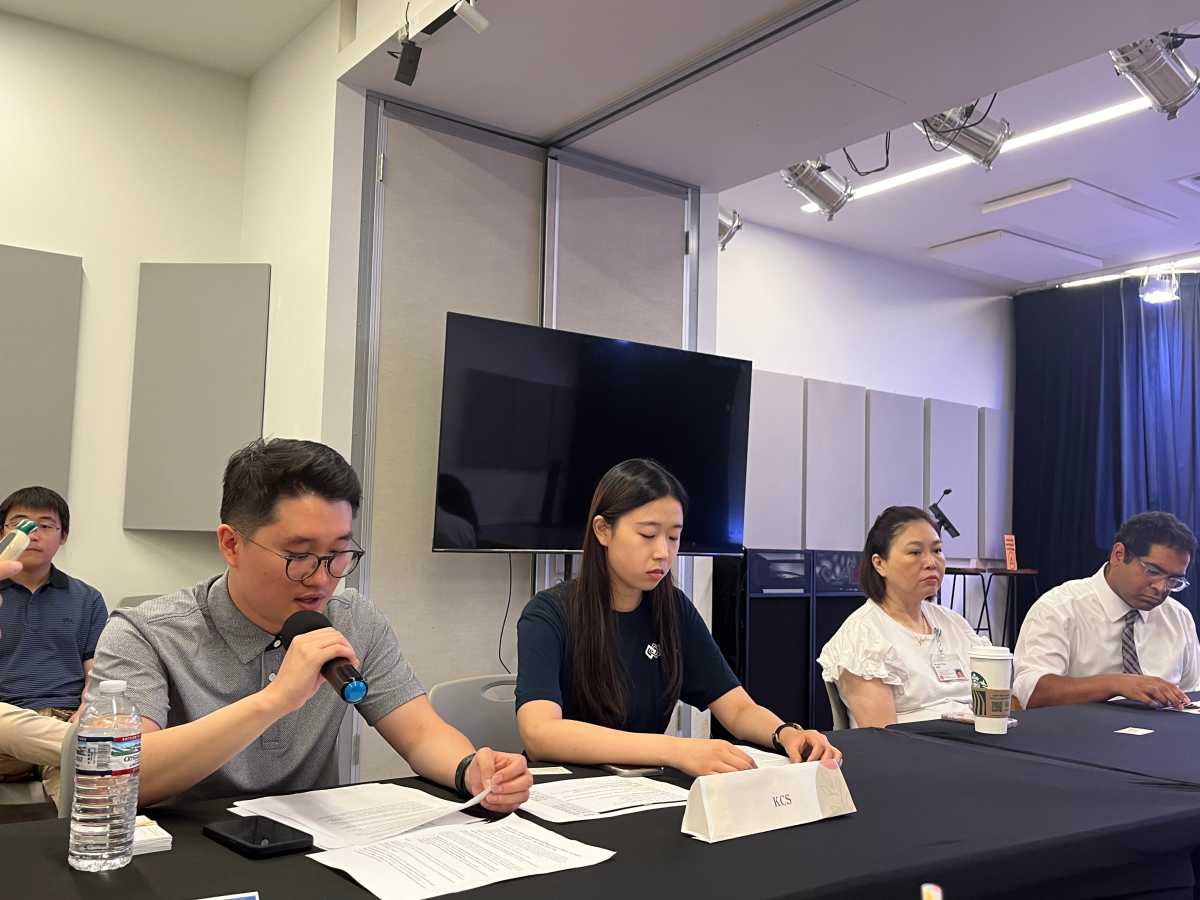
For decades, KCS has been a large social service provider for the Korean American community in Queens. Over the last decade, it has expanded its services to the Chinese and Hispanic communities. KCS’s mission is to bridge gaps between economic, health, and linguistic barriers for all the communities it serves.
Xingping Wu, KCS’s workforce development program manager, explained that the recent loss of one of KCS’s vital work programs for seniors could also result in a future loss of Medicaid coverage due to the bill’s new work requirements.
The reconciliation bills’ guidelines state that able-bodied adults aged 19-64 must work for at least 80 hours a month to be eligible for Medicaid. There are mandatory exemptions for qualifying individuals such as pregnant women, those with serious medical conditions and parents or caregivers of a child 13 and under or with a disability.
Ping explained that KCS’s Senior Community Service Employment Program for low-income seniors has been furloughed as of July 1st, leaving many seniors out of work and vulnerable.
“They don’t have an income at this moment, and with the change in insurance requirements and also food stamps, there is a potential chance that they will lose those benefits because they have to fulfill those requirements,” she said.
“Many of our seniors are currently in shelters; we have seniors who have no other income, so they really rely heavily on SCSEP. This is a very serious issue for our seniors and our community as well,” Wu said.
Bernice Mach, advocacy manager for CPC, said the consolidation bill will be, and has already been devastating to AAPI communities in New York. Based on initial analysis, CPC believes that 20% of its community members currently on SNAP will lose their benefits.
“It will hit AAPI families especially hard since we tend to live in mixed-status and multigenerational families more than any other racial or ethnic subgroups,” she said. “We already have community members calling into our centers, crying tears, asking about how these cuts will impact their families,” Mach said.
Mach also highlighted that Chinese immigrants are also vulnerable to the consolidation bill’s new immigration and work requirements for Medicaid. Previously, certain groups, including refugees, asylum seekers, survivors of domestic violence, and victims of trafficking, were eligible for certain healthcare benefits.
As of October 1, 2026, Medicaid eligibility for immigrants will be limited to specific groups. These include U.S. citizens, lawful permanent residents, certain Cuban and Haitian entrants and citizens of the Freely Associated States (COFA migrants) who are lawfully residing in the U.S. Additionally, lawfully residing children and pregnant adults will be covered in states that extend eligibility to them.
According to Mach, the majority of Chinese immigrants coming to New York enter as asylum seekers, leaving their healthcare status uncertain under the bill’s new immigration guidelines.

